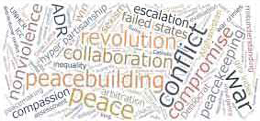"I was taking care of animals," he explained.
"Oh," I said, not quite understanding.
"Yes," he said, "I stayed, you see, taking care of animals. I was the last one to leave the town of San Carlos."
He did not look like a shepherd nor a herdsman and I looked at his black dusty clothes and his gray dusty face and his steel rimmed spectacles and said, "What animals were they?"
"Various animals," he said, and shook his head. "I had to leave them."
I was watching the bridge and the African looking country of the Ebro Delta and wondering how long now it would be before we would see the enemy, and listening all the while for the first noises that would signal that ever mysterious event called contact, and the old man still sat there.
"What animals were they?" I asked.
"There were three animals altogether," he explained. "There were two goats and a cat and then there were four pairs of pigeons."
"And you had to leave them?" I asked.
"Yes. Because of the artillery. The captain told me to go because of the artillery."
"And you have no family?" I asked, watching the far end of the bridge where a few last carts were hurrying down the slope of the bank.
"No," he said, "only the animals I stated. The cat, of course, will be all right. A cat can look out for itself, but I cannot think what will become of the others."
"What politics have you?" I asked.
"I am without politics," he said. "I am seventy-six years old. I have come twelve kilometers now and I think now I can go no further."
"This is not a good place to stop," I said. "If you can make it, there are trucks up the road where it forks for Tortosa."
"I will wait a while," he said, " and then I will go. Where do the trucks go?" "Towards Barcelona," I told him.
"I know no one in that direction," he said, "but thank you very much. Thank you again very much."
He looked at me very blankly and tiredly, and then said, having to share his worry with someone, "The cat will be all right, I am sure. There is no need to be unquiet about the cat. But the others. Now what do you think about the others?"
"Why they'll probably come through it all right."
"You think so?"
"Why not," I said, watching the far bank where now there were no carts.
"But what will they do under the artillery when I was told to leave because of the artillery?"
"Did you leave the dove cage unlocked?" I asked. "Yes."
"Then they'll fly."
"Yes, certainly they'll fly. But the others. It's better not to think about the others," he said.
"If you are rested I would go," I urged. "Get up and try to walk now."
"Thank you," he said and got to his feet, swayed from side to side and then sat down backwards in the dust.
"I was taking care of animals," he said dully, but no longer to me. "I was only taking care of animals."
There was nothing to do about him. It was Easter Sunday and the Fascists were advancing toward the Ebro. It was a gray overcast day with a low ceiling so their planes were not up. That and the fact that cats know how to look after themselves was all the good luck that old man would ever have.
3. Guess the meaning of the following words by using contextual and other clues.
a. pontoon
b. staggered
c. plodded
d. blankly
e. fascist
4. Answer the following questions:
a. What was the old man doing in his native town?
b. How does the narrator describe the old man?
c. Why is the old man not much concerned about the cat?
d. Why is the old man so concerned with 'other animals'?
e. Where are the trucks going?
f. Which war does the author use as the backdrop of his story?
g. What is the narrator's job in the story?
h. Why does the old man stop and not go across the bridge?
i. Why does the author describe contact as 'that ever mysterious event'?
j. What is the function of the old man in the story?
k. What effect does the war have on the peasants?
I. What is the setting of the story?
5. Write a summary of the text.
6. Critically examine how the theme has been presented in the text.
7. Find the meaning of the following words and make sentences with them:
a. spectacles
b. spokes
c. plod
d. explore
e. bridgehead
f. herdsman
g. artillery
h. blantly
i. unquiet
j. sway
k. overcast
If you want to read the next lesson of this unit please click the link below:
Lesson 5: The Peace Movement






0 Comments:
Post a Comment